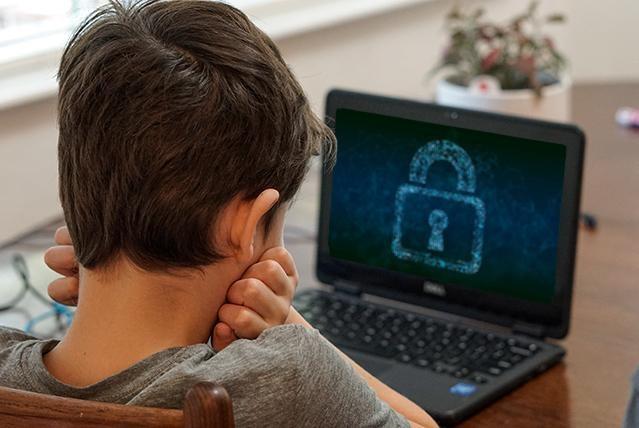It is crucial for kids to understand cybersecurity at an early age in this modern digital world. With the increased use of technology, children are more exposed to cyber risks.
Hence, it is essential that adults like parents, teachers, and others teach kids about cybersecurity and internet safety.
The Need for Cybersecurity Education

As technology develops, cyber-attacks become increasingly complex and difficult to recognize. According to Cybersecurity Ventures, a leading cybersecurity research firm, cybercrime will cost the world $10.5 trillion annually by 2025.
With this alarming statistic, it is essential to teach kids about cybersecurity at a young age to lower the danger of cyber threats.
Nowadays, young kids are exposed to technology and the internet. They use devices such as smartphones, tablets, laptops, and gaming consoles to connect with friends, play games, watch videos, and learn. As they interact with these devices, they unknowingly expose themselves to online risks such as cyberbullying, identity theft, hacking, and phishing attacks.
The importance of cybersecurity education cannot be overstated. Children must be taught about cybersecurity and online safety so they can defend themselves against dangers.
Cybersecurity education can help children develop the skills needed to navigate the digital world safely.
Understanding Cybersecurity Threats
 Cybersecurity threats come in various forms and are continually evolving. It is essential to teach children about these threats to enable them to identify and avoid them.
Cybersecurity threats come in various forms and are continually evolving. It is essential to teach children about these threats to enable them to identify and avoid them.
Some of the common cybersecurity threats that children may face include:
1. Phishing attacks
Phishing attacks involve sending fraudulent emails, text messages, or social media messages to trick people into providing sensitive information such as login credentials, credit card details, and social security numbers.
2. Malware
Malware is software designed to harm or compromise a computer system. It can be downloaded onto a device through malicious links, email attachments, or software downloads.
3. Cyberbullying
Cyberbullying involves using technology to harass, humiliate, or intimidate someone. It can occur through social media platforms, online gaming, or messaging apps.
4. Identity theft
Identity theft is the unauthorized use of someone’s personal information to commit fraud or other crimes. Children are particularly vulnerable to identity theft since they may not have a credit history and may not detect the theft until years later.
Why Criminals Love Your IP Address
“What can someone do with my IP address?” you may wonder. An IP address is a unique identifier assigned to every device connected to the internet. It is like a digital address that identifies a device’s online location. Knowing someone’s IP address can allow cybercriminals to launch various attacks. For example, they could use it to conduct a distributed denial-of-service (DDoS) attack to overwhelm a website’s servers or gain unauthorized access to a network.
Teaching Cybersecurity Skills
 Cybersecurity education should involve teaching children the skills needed to protect themselves online. Some of the essential cybersecurity skills include:
Cybersecurity education should involve teaching children the skills needed to protect themselves online. Some of the essential cybersecurity skills include:
1. Password management
Children should learn how to create strong passwords and keep them secure. They should also know not to share passwords with others.
2. Privacy
Kids should understand the importance of privacy and how to protect their personal information online. They should also know how to adjust their privacy settings on social media and other online platforms.
3. Safe browsing
Children should know how to browse the internet safely, avoiding suspicious links, pop-ups, and downloads.
4. Social media safety
It is important to know how to use social media safely, including understanding how to recognize fake profiles and how to report inappropriate content.
5. Email safety
Identifying and avoiding phishing emails is also important. Teach kids how to verify email authenticity before clicking links or downloading attachments.
6. Reporting
Children should know how to report cyber threats and online harassment to trusted adults or law enforcement authorities.
Cybersecurity education can be incorporated into various learning environments, including schools, after-school programs, and online home learning. Teachers and parents can use age-appropriate materials, videos, games, and interactive activities to teach children about cybersecurity.
Creating a Cyber-Safe Environment
 In addition to teaching children about cybersecurity, creating a cyber-safe environment is essential. This involves setting rules and guidelines for using technology and the internet. Parents and teachers can establish guidelines on when and how children can use technology, what websites and apps they can access, and how to communicate safely online.
In addition to teaching children about cybersecurity, creating a cyber-safe environment is essential. This involves setting rules and guidelines for using technology and the internet. Parents and teachers can establish guidelines on when and how children can use technology, what websites and apps they can access, and how to communicate safely online.
Parents can also use parental control software to monitor their children’s online activities and limit access to inappropriate content. This software can also help prevent children from accidentally downloading malware or giving out personal information.
Conclusion
In conclusion, cybersecurity education is essential for children in today’s digital age. As children become more exposed to technology and the internet, they become more vulnerable to cyber threats such as phishing, malware, cyberbullying, identity theft, and hacking. Cybersecurity education should teach children the skills to protect themselves online, including password management, privacy, safe browsing, social media safety, email safety, and reporting.
Parents and teachers can also create a cyber-safe environment by establishing guidelines for technology use and using parental control software. Educating children about cybersecurity can help them navigate the digital world safely and reduce the risk of cyber threats and cybercrime.
Author Profile

- Editor in Chief
- Blogger and Educator by Passion | Senior Online Media & PR Strategist at ClickDo Ltd. | Contributor to many Education, Business & Lifestyle Blogs in the United Kingdom & Germany | Summer Course Student at the London School of Journalism and Course Instructor at the SeekaHost University.
Latest entries
 schoolingJanuary 23, 20265 Essential Skills for Managing Teaching Teams in Schools
schoolingJanuary 23, 20265 Essential Skills for Managing Teaching Teams in Schools Directory PostsOctober 29, 20257 Not-To-Miss UK Education Conferences in 2026
Directory PostsOctober 29, 20257 Not-To-Miss UK Education Conferences in 2026 Directory PostsOctober 16, 2025The 12 Best Online Tutoring Platforms in the UK
Directory PostsOctober 16, 2025The 12 Best Online Tutoring Platforms in the UK Directory PostsOctober 6, 2025Top 12 London Private Schools – Best Independent Schools Nearby
Directory PostsOctober 6, 2025Top 12 London Private Schools – Best Independent Schools Nearby







